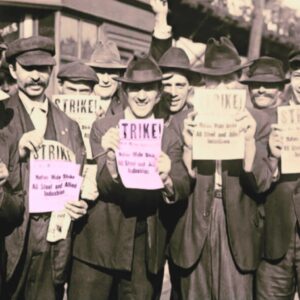
The Diminishing Returns of Freelance Magazine Writing
Kent Russell on "Beautifying Your Own Corpse"
I.
A good friend of mine, a colleague—she and I were texting about the magazine-writing world the other day. I was complaining about procrustean word counts and shrinking narrative scope; she was grieving over the loss of anything resembling artistry on the line level. I’d initially reached out to her because I needed help with a prompt given to me by the fine folks at Lit Hub: Write about my creative process. But our conversation quickly regressed to its mean, because she and I both are freelance magazine writers, and what you do when you’re a freelance magazine writer is bitch daily about editors with other freelance magazine writers.
I texted: they misapprehend and hobble you, like Kathy Bates in Misery
She texted: they keep licking the boot of the market forces
that have been kicking the shit out of them forever
it’s like
you prepare for them a free-range, pan-roasted squab
and then they take it, break it down
pluck nuance and complexity like so many fine bones
“it doesn’t scan”
run the meat through the grinder with some inorganic binding agents added
“it doesn’t scan on an iPhone screen”
extrude the pink slime of your new story into a nugget shape
drop it into the fry-o-later
eh
writing for magazines today
feels like constantly getting dumped for someone stupider
II.
This makes us sound like real assholes, of course. Ungrateful and petulant. And we are that, we are that. Getting paid to educate oneself on a subject and then write about it? That is a great privilege, not some burden or tragedy.
What I will say is it’s a very dangerous privilege. Getting paid a decent-ish amount of money to write something is like drinking sea water: after that first sip, you only get thirstier.
III.
And editors, hoo goodness, are they essential. Now more than ever. Editors, when they’re good, rescue me from the false freedom of limitless choice. They stop me from digressing for another half-billion words, or from saying Fuck it, I’m not contextualizing the Battle of Jutland, here’s an embedded hyperlink to the Wiki. Editors, when they’re good, know that the more and more frantically I write, the more I am buffering the reader from the realness or point or truth of what I’m writing.
In short, editors (when they’re good) pay out only so much rope that I might hogtie rather than hang myself.
IV.
I wrote this down word-for-word in a notebook in 2011, when Paul Maliszewski published it: “The first rule of magazine journalism is to entertain. The second is to detect the preconceptions of the editorial class and deliver on them. Every accomplished magazine writer satisfies expectations. Their writing, almost completely barren of original thought yet so rich in sensory detail, fits comfortably into a pre-existing view of the world. Such writing reflects, like a trick mirror, that things are just the way they’re believed to be. The problem is that this is not writing; it’s flattery.”
V.
But, no, I’ve got no beef with editors. Far from it. Most of them are kind, generous, patient, brilliant professionals who—but for a love of words and stories—could have been lawyers, ad execs. They could have owned brownstones and boats. I love these people, respect them, need them. Sometimes I worry that this need borders on the proto-fascistic. I.e., “I tell Thee that man is tormented by no greater anxiety than to find some one quickly to whom he can hand over that gift of freedom with which the ill-fated creature is born.”
Nevertheless, I’ll oftentimes sabotage my own stories with stupid-ass pretensions, just so I can feel superior when said stories are killed or significantly overhauled. In my head, I’ll be like, Uh huh, yup, you’re out here just trying to do your job, right, associate editor Eichmann???
Wracked with guilt after that, I’ll try to remind myself that these are people who live in fear of perennial “restructuring.” I’ll try to keep in mind that magazines are in fact businesses. It is ludicrous of me to expect—nay, demand—that editors care as much as I do about the line-by-line meter of my plotless character study. Or the provenance of this exquisitely belletristic dick joke. These people, they’re doing the best they can, given the climate.
Still. As George Saunders wrote: “In surrendering our mass storytelling function to entities whose first priority is profit, we make a dangerous concession: ‘Tell us,’ we say in effect, ‘as much truth as you can, while still making money.’ This is not the same as asking: ‘Tell us the truth.’”
VI.
That friend of mine, the colleague—she texted later:
writing for non-online-savvy mags
feels like
meticulously fussing over and beautifying your own corpse
before sliding it into the marble mausoleum drawer
VII.
There’s no going back to a time when John Hersey stories could take up an entire post-war issue of the New Yorker. Or even when John Jeremiah Sullivan could free-associate for thousands of words at a time in early-2000s Harper’s. Things are what they have become, and maybe that’s OK, though probably it isn’t.
Whatever the case, I understand that my notion of what it means to be a magazine writer is a particular one, a crystallized one. It’s the conception I fell in love with when I was younger, so it’s the conception I want to realize. Had I not been a white dude who came of age at the University of Florida in the mid-aughts, my conception would be a radically different one. Whatever, though. For me, it was Wallace, Sullivan, Didion, Wolfe, Baldwin, Gay Talese, Lillian Ross, A.J. Liebling, Bill Buford. McPhee and Kapuscinski. Norman Mailer and H.S.T., if I gotta. I found Ander Monson and John D’Agata and Rebecca Solnit by accident in the basement of the Smathers Library, where the AC was stronger. Stephen Crane’s “When a Man Falls, A Crowd Gathers” was weirdly foundational. I have yet to read Agee, but that’s because I worry my crotch might burst into flames when I do.
I was transfixed by this idea that I could go out, experience the world, try to make personal sense of it, and then write it up in the style of the voice in my head. I could do something as audacious as what Montaigne did: Write a letter about what I thought or believed, only instead of addressing it “Dear John,” scratch the “John” and put “You” in its place.
Clinging to that conception, not adapting—that’s on me. I get that.
And that conception was probably never even true in the first place! Nostalgia is what happens when you look back on something you didn’t quite know and think you can make out some artificial coherence in what was a limited system, anyway.
But! But. For better or worse, I prefer the sweet appeasements of that nostalgia. (/Worse.) At least when compared to the present-day reality: Still more people on the bus or drive home, their multiple shifts over with, a post or a list or a podcast on their phone, visions of Netflix dancing through their heads.
VIII.
Being a freelance magazine writer nowadays feels a whole lot like being the canny-callous survivor in a post-apocalypse movie. I’ve got one eye on the door, always, and no, I’m not joining your rag-tag group, you’re only going to slow me down.
IX.
“Precariously employed,” I am. Of course, a lot of people are that now. And when you’re precariously employed—when you are an atomic unit of subjectivity, a one-person corporation—you are (barf) “your own brand.” You can’t help but internalize the logic of corporate marketing. You must commercialize and deploy your professional self.
Implicitly, the precariously employed person is never not working on that professional self. You (or at least I) feel bad if you’re not mobilizing your leisure time towards productive work on that self. Building your brand.
X.
In the movies, the canny-callous survivor is usually a big secret softie. He or she is really just feigning that sneering autonomy. He or she is actually incredibly fearful—albeit of devotion, communion, having to give a shit about anyone else. The canny-callous survivor has loved and lost, or else they’ve loved and wronged. They retain this capacity for love; it’s just that, for whatever reason, they’re afraid of this capacity and so don’t want to fire it up again. Or inspire it in another. Then they’d be beholden to that love.
It’s kind of like how fathers or brothers say Don’t get me a goddamn birthday present! because then they’d have to get you one in return.
XI.
Really what this-all makes me think of is this seeping, insidious tone; this almost pathological voice. I read this voice all over the place, but mostly I read it wherever canny-callous survivors are concentrated, at work building their brand online.
It’s a voice that resists assimilation by maintaining ironic distance. It seems bitterly resigned, though the source of that bitterness is never made apparent. It can be compassionate, and very much concerned with justice, yet the victims and causes most important to it are the ones which allow it to condemn its rivals.
This voice questions the adequacy of all convention—shits on it at every opportunity, really—and claims a knowledge superior to any that convention could conceivably offer. It is an aloof voice, a *superior* voice, insofar as the ironic voice always issues from a superior perspective, one whose vantage allows the voice to see over, past, and through everything that has duped the naive, dumb, and wrong. This voice—it always knows more. Must always know more.
But quivering just under it like a swallowed sob is what Cioran said: “There is no negator who is not famished for some catastrophic YES.”
XII.
(This voice tho, holy shit, it is still more preferable by leagues to its foil: the relentlessly upbeat, upworthy, up-everything, up-yours-and-mine voice. “Voice” is actually too kind. Humans have voices. This thing is all tone and pitch, textual toilet water. The stink of it rolled like miasma out of conference rooms and TED talks, places where ideas are pitched to investors, before it settled on us.)
XIII.
I’ve tried not to indulge this voice (the mean one), seductive as it is, precisely because it is so diabolically seductive. In doing so, I’ve had to quarantine myself from practically every content management system and social media platform. I’ve stuck to moribund ol’ legacy media—to my frenemies, the magazine editors.
What this has meant, at least in the case of the six or seven years that led up to my first book: I approached freelance stories as any precariously employed writer would, yet instead of building my brand extratextually, via social media and whatever else, I conceived of and deployed my professional self as an autofiction writer might.
This was between the ages of 22 and 28. At the time, I was also working a part-time job that afforded me the (limited) financial freedom to focus on stories that were important to me, that related to questions I needed answered. Practically all of these questions had something to do with how white guys (i.e., me) were dealing with castration anxiety. That is: How were they coping with or acquiescing to the fact that they’re fighting a tactical retreat? For the first time ever, their identity has deliquesced, become protean, unstable, accountable to others. They have been shorn of meaning as well as power, a la Samson post-Delilah. What did that look like?
I tried to use my freedom to practice the kind of writing that Vivian Gornick so beautifully elucidates in The Situation and the Story: “In nonfiction, the writer has only the singular self to work with. So it is the other in oneself that the writer must seek and find to create movement, achieve a dynamic. Inevitably, the piece builds only when the narrator is involved not in confession but in this kind of self-investigation, the kind that means to provide motion, purpose, and dramatic tension. Here, it is self-implication that is required. To see one’s own part in the situation—that is, one’s own frightened or cowardly or self-deceived part—is to create the dynamic.”
So, I fashioned my self into the narrating consciousness as well as the main character. This character was propelled forward into stories that afforded or denied him a kind of growth that was then filtered through the narrating consciousness. Each successive story sprang from one of those that preceded it. The oeuvre is the soul, and all that.
I don’t think I reinvented the wheel here. (Especially in my desire to get paid twice for my work—once from magazines, and once from Knopf.) And of course many of these pieces were originally edited by a particular editor for a particular audience. They went through many, many drafts, drafts I saved for later, never losing sight of the larger project, I Am Sorry To Think I Have Raised A Timid Son.
In the case of each piece, I felt as though I was constructing a garment that I would ultimately wear—it’s just that I was tailoring the fabric to a client’s specifications. Each was hemmed and foreshortened to fit someone else. But the time would come when I could let those seams out, refashion the cohesiveness of my fall collection before voguing down the runway, gloriously.
XIV.
I watched an inordinate amount of Project Runway while writing I Am Sorry To Think I Have Raised A Timid Son. If that wasn’t apparent.
XV.
This is a good question to ask of oneself from time to time, but I find it especially useful to ask of the people I’m trying to write about:
What do you give highest value to?
Tell me what that is—what you hold as your god—and I will come a little closer to understanding you.
What are your forces? With what are you aligned?
XVI.
In John Milton’s Comus, the Attendant Spirit says that “unbelief is blind.” What this means, I think, is that my field of perception is a function of my prior inner orientation. My sight is calibrated towards the thing I give value to. What appears or does not appear to me depends on what I believe I can see. For instance, the evangelical Christian will make out signs of grace or damnation in the wake of a natural disaster. Whereas the nihilist will see still more evidence of his meaningless, purposeless, tragicomic universe. The self-interested person perceives little to nothing at all, because their antecedently held picture of the way things are = WE THE BEST !
The Lady of Milton’s Comus, she finds herself alone in a pitch-dark wood. She hears some startling shit. She is knocked out of her orientation toward what she believes is good and right. She loses her conception of the Highest in a moment of terror. Really, she lets it get hijacked by forces outside of her. She becomes like a blank slate; she allows herself to be written over by agents from without.
But then when (as Stanley Fish writes), “she recalls herself to her center (faith in [her] Supreme Good) and projects her calm outward, it is her pen, wielded from the inside, that draws the gold and silver lines of her present and future story.”
In other words, it’s my choice as to whether or not I’m scared of the thing that goes bump in the night. That bump is just an opportunity for me to reaffirm what I believe in, or not. The thing going bump can be a villain, or it can be a stranger in need of my help. It can be nothing at all, or it can be the face of God Himself. Whatever I believe at that moment will be the thing I perceive.
Of course, this line of thinking can get real solipsistic real fast. Thinking this way, a person might become like the lone singer Wallace Stevens wrote about, for whom “There never was a world for her / Except the one she sang and, singing, made.” When you’re a freelancer, when you have to re-make your career if not your world every goddamn day, you can fall into this line of thinking. I certainly have.
But I try to keep myself aligned with what I believe is good. I try to make myself a servant of it, a client, so that everywhere I look, I see traces of it. Or its lack.
I don’t know, dog. It can get scary out here.
Kent Russell
Kent Russell’s essays have appeared in The New Republic, Harper’s Magazine, GQ, n+1, The Believer, and Grantland. He is the author of I Am Sorry to Have Raised A Timid Son. He lives in Brooklyn, NY.



















